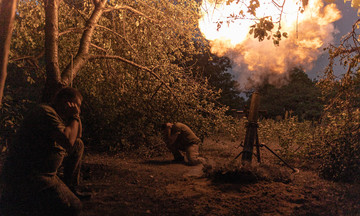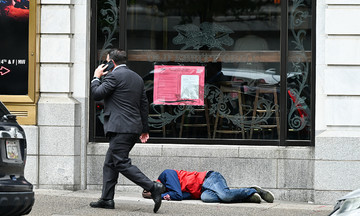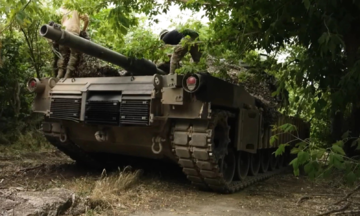On 16/7, the Israeli military conducted a series of airstrikes on Damascus, hitting the Syrian Ministry of Defense and areas surrounding the presidential palace. A day earlier, Tel Aviv targeted Syrian army positions in the southern city of Sweida, forcing Interim President Ahmed al-Sharaa to withdraw troops to avoid "direct war" with Israel.
This development has escalated tensions between Israel and the new Syrian government. It also comes as a surprise, as regional media suggested the two countries were on the verge of a peace agreement before the end of the year.
While Israel claims the airstrikes were meant to protect the Druze community in southern Syria, experts believe Prime Minister Benjamin Netanyahu has other objectives.
The Druze are a religious and ethnic community primarily residing in Syria, Lebanon, and Israel. Druze is a distinct religion with similarities to Shiite Islam. It does not recognize conversion and restricts marriage outside the community.
About 140,000 Druze live in Israel, making up about 2% of the population. Many serve in the Israeli military, making them an influential minority group in the country's politics.
Tel Aviv emphasizes the Druze community's significant contributions to Israel's security, with many having died protecting the country.
Between 250,000 and 300,000 Druze live in Syria, concentrated in the southern province of Sweida. They share deep ancestral and historical ties with the Druze community in Israel.
Consequently, Israeli Druze often urge their government to protect their "brethren" in Syria, even though Tel Aviv has no formal alliance with the Druze community there.
In Sweida, the Druze have a long-standing feud with the Bedouin, nomadic Sunni Muslim tribes in the region. Tensions have increased since Ahmed al-Sharaa's forces overthrew President Bashar al-Assad and established a new government in Damascus. The new Syrian government is considered an ally of Bedouin militias in the south.
Since Sharaa took power, the Syrian army has clashed with Druze militias in Sweida and near Damascus in April and May, resulting in over 100 deaths. Fighting subsided only after Sharaa's government reached a ceasefire agreement with Druze leaders.
However, violence erupted again in Sweida on 13/7, following reports of Bedouin gunmen kidnapping a Druze merchant on the highway to Damascus. Druze militias and Bedouin engaged in intense firefights.
The prolonged clashes prompted President Sharaa to deploy troops to the south to "restore order" and oversee the ceasefire. However, witnesses reported that government forces joined Bedouin in attacking Druze fighters and civilians throughout the city.
The UK-based Syrian Observatory for Human Rights (SOHR) reported that the clashes in Sweida killed over 350 people, including government forces, local gunmen, and civilians, with 27 Druze "executed on the spot."
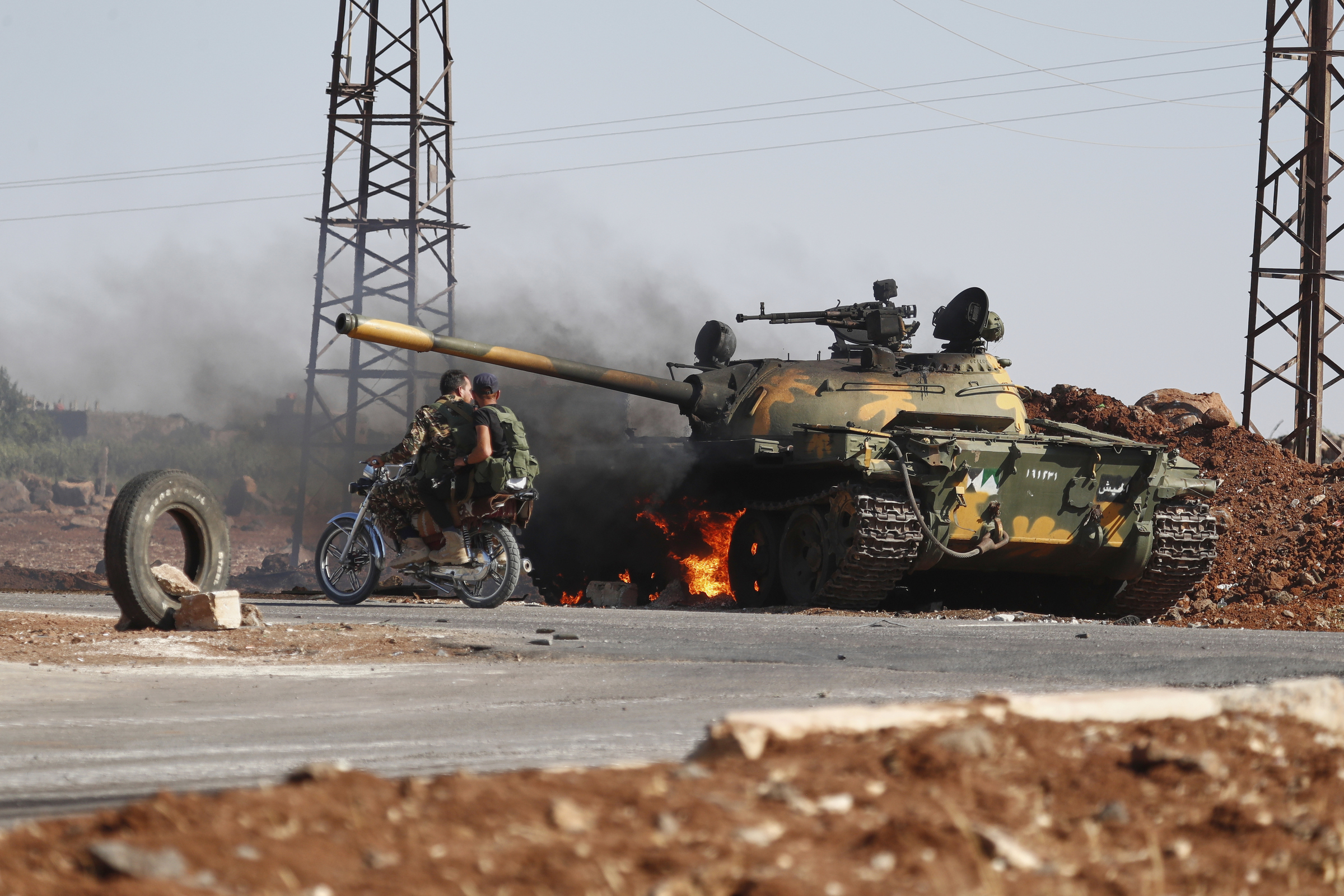 |
Syrian army soldiers ride a motorcycle past a burnt-out tank on the outskirts of Sweida on 14/7. Photo: *AP* |
Rafik Halabi, mayor of Daliyat al-Karmel, one of the largest Druze towns in Israel, stated that Israeli Druze protested, pressuring Netanyahu's government. Tel Aviv was further compelled to act after reports of about 1,000 Israeli Druze crossing the border into Syria in solidarity with their community.
"Israel is committed to protecting the Druze in Syria, stemming from blood ties with Israeli Druze and historical, familial connections," Prime Minister Netanyahu and Defense Minister Katz declared on 15/7.
Another reason for Israel's intervention is to ensure border security.
Israel and Syria have a history of armed conflict and ongoing disputes over the Golan Heights, a strategically important area for both military positioning and water resources.
Under President Bashar al-Assad, Syria was allied with Iran, Israel's arch-enemy in the Middle East. After overthrowing Assad in early 12/2024, Interim President Sharaa distanced Damascus from Tehran's influence.
However, Netanyahu's government still views Sharaa's administration as an "extremist Islamic regime" and a threat to Israel. This is because the interim Syrian leader was formerly the head of Hayat Tahrir al-Sham (HTS), a group designated as a terrorist organization by the US and other countries.
As a precaution, Israeli forces have occupied small areas in southwestern Syria since 12/2024, conducting airstrikes to destroy advanced military equipment left by the Assad regime, preventing it from falling into Sharaa's hands. Israel also unilaterally imposed a demilitarized zone in Syria, prohibiting the new Damascus government from deploying forces and weapons to the south.
In early July, the US lifted sanctions on Syria and removed HTS from its list of terrorist organizations, paving the way for cooperation in rebuilding the Middle Eastern nation.
An Israeli official told *CNN* that Netanyahu had urged the US president not to lift sanctions on Syria, fearing a repeat of the October 2023 Hamas attack on southern Israel.
Sweida's strategic location near the borders of Jordan and Israel makes the increased presence of the Syrian army there unsettling for Israel.
"Israel will not allow Sharaa's government to extend its influence across all of Syria," Ammar Kahf, executive director of the Damascus-based Omran Center for Strategic Studies, told *Al Jazeera*.
According to Kahf, Israel is attempting to impose its will on Syria's new government.
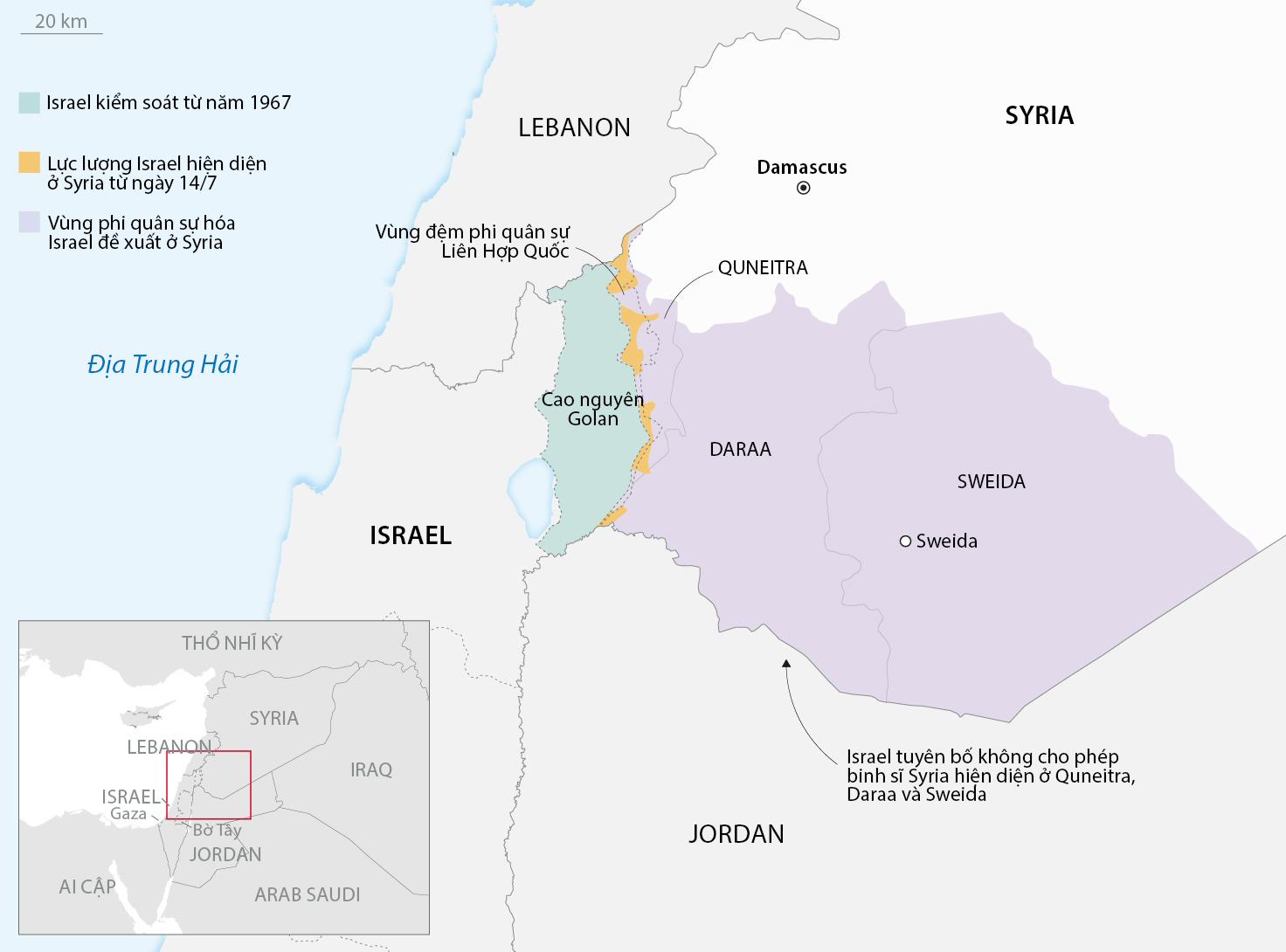 |
Location of Sweida province and its capital city in southern Syria, bordering the Golan Heights and Jordan. Graphic: *CNN* |
The airstrikes have overshadowed negotiations between Israel and Syria, diminishing prospects for a diplomatic agreement. Interim President Sharaa accused Israel on 17/7 of trying to "sow chaos" in Syria.
Despite this, Netanyahu likely still seeks a non-aggression pact with Sharaa, according to Carmit Valensi, an expert on Israeli-Syrian relations at the Institute for National Security Studies in Tel Aviv.
The unilateral declaration of a demilitarized zone in southern Syria appears to be an opening move, setting the stage for a future compromise. According to Valensi, Israel might allow Syrian forces to return to some areas in southwestern Syria if Sharaa commits to not attacking Israel.
"Israel understands that complete long-term demilitarization is a difficult goal. That's why this is just one part, or rather the starting point, in the negotiation process," Valensi said.
Nhu Tam (*Washington Post*, *CNN*, *Al Jazeera*)










